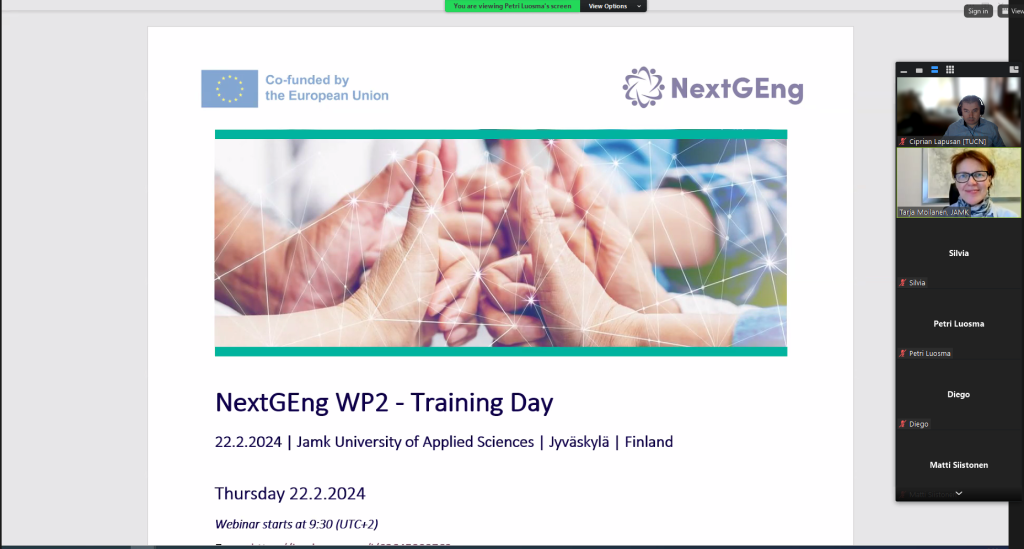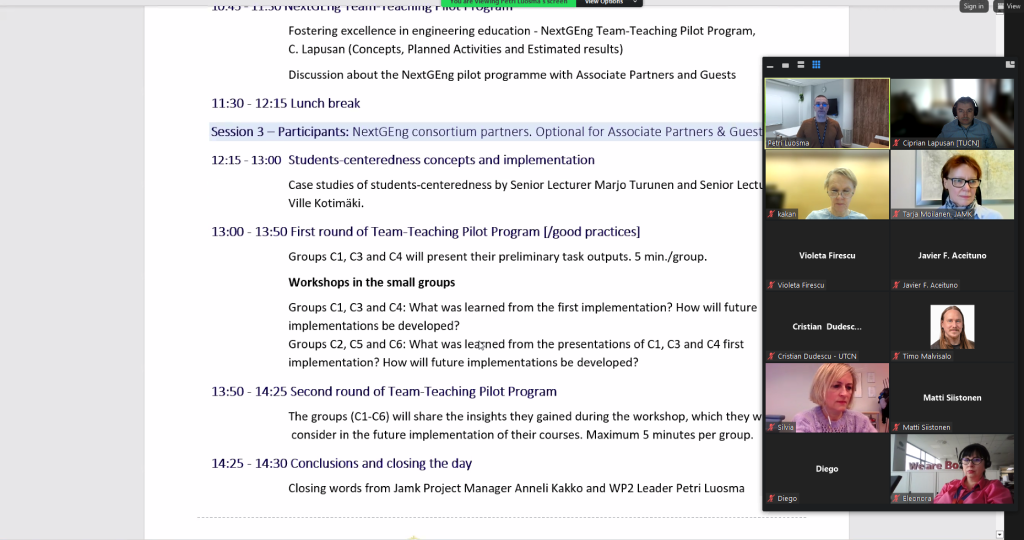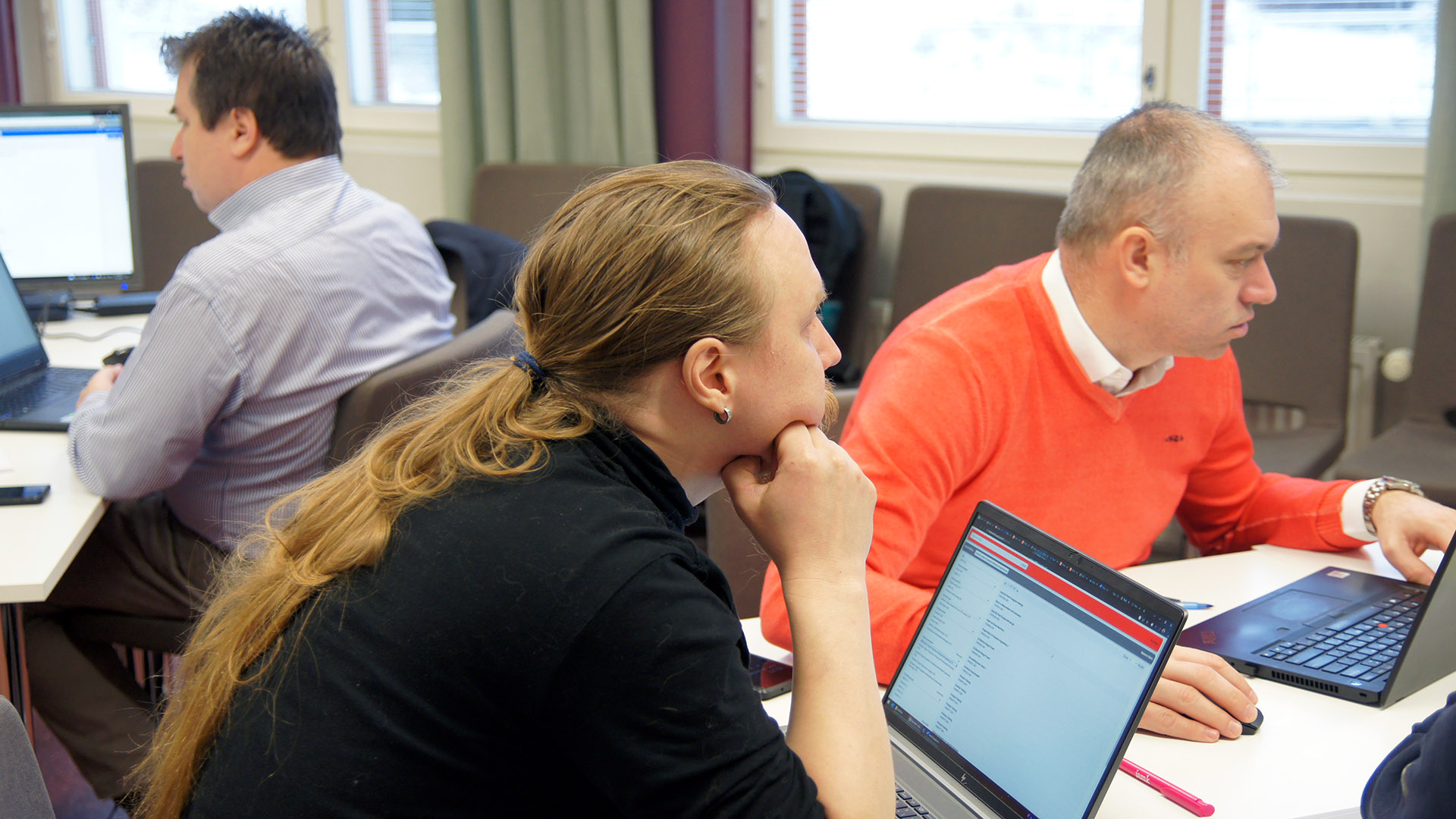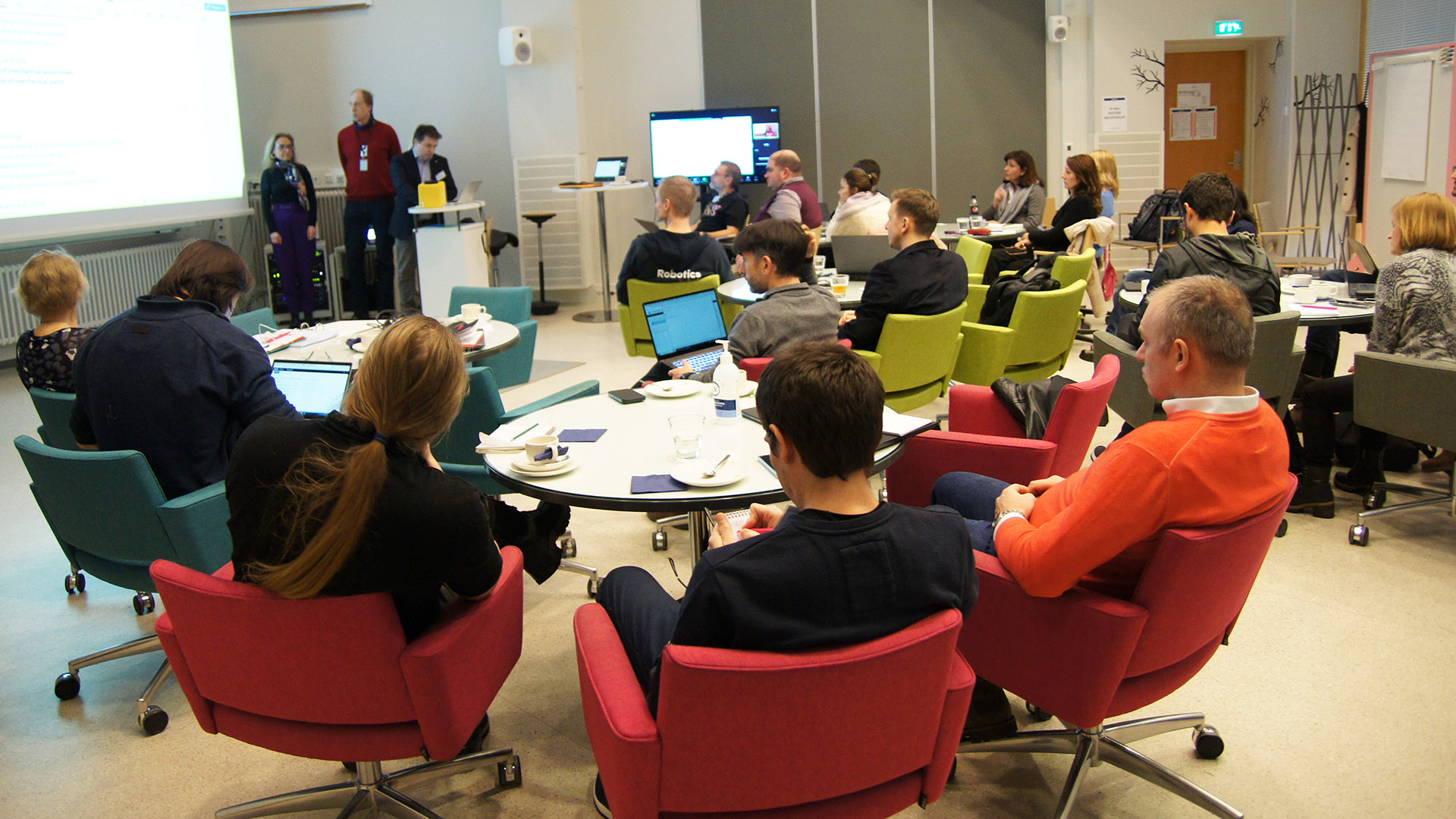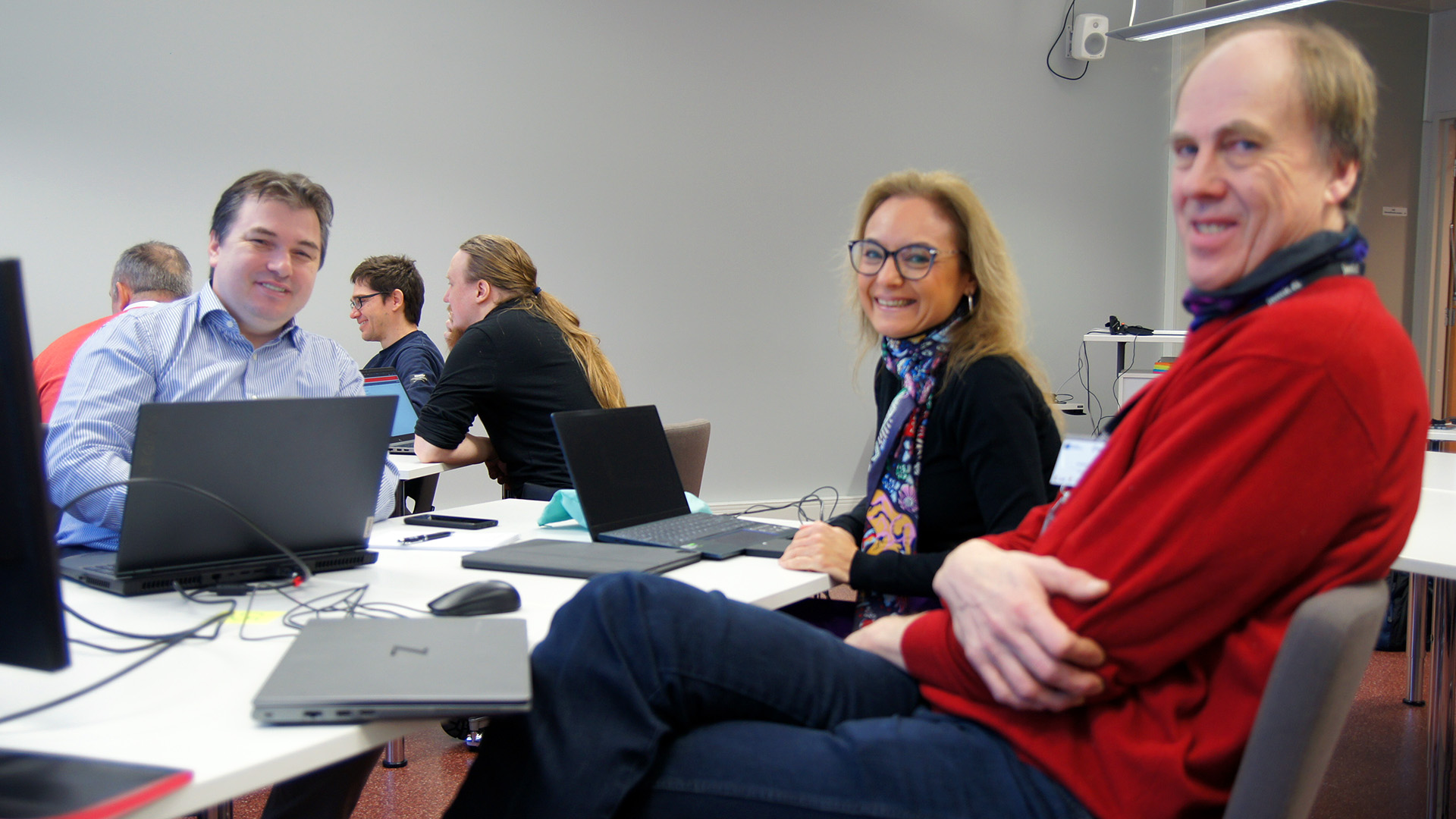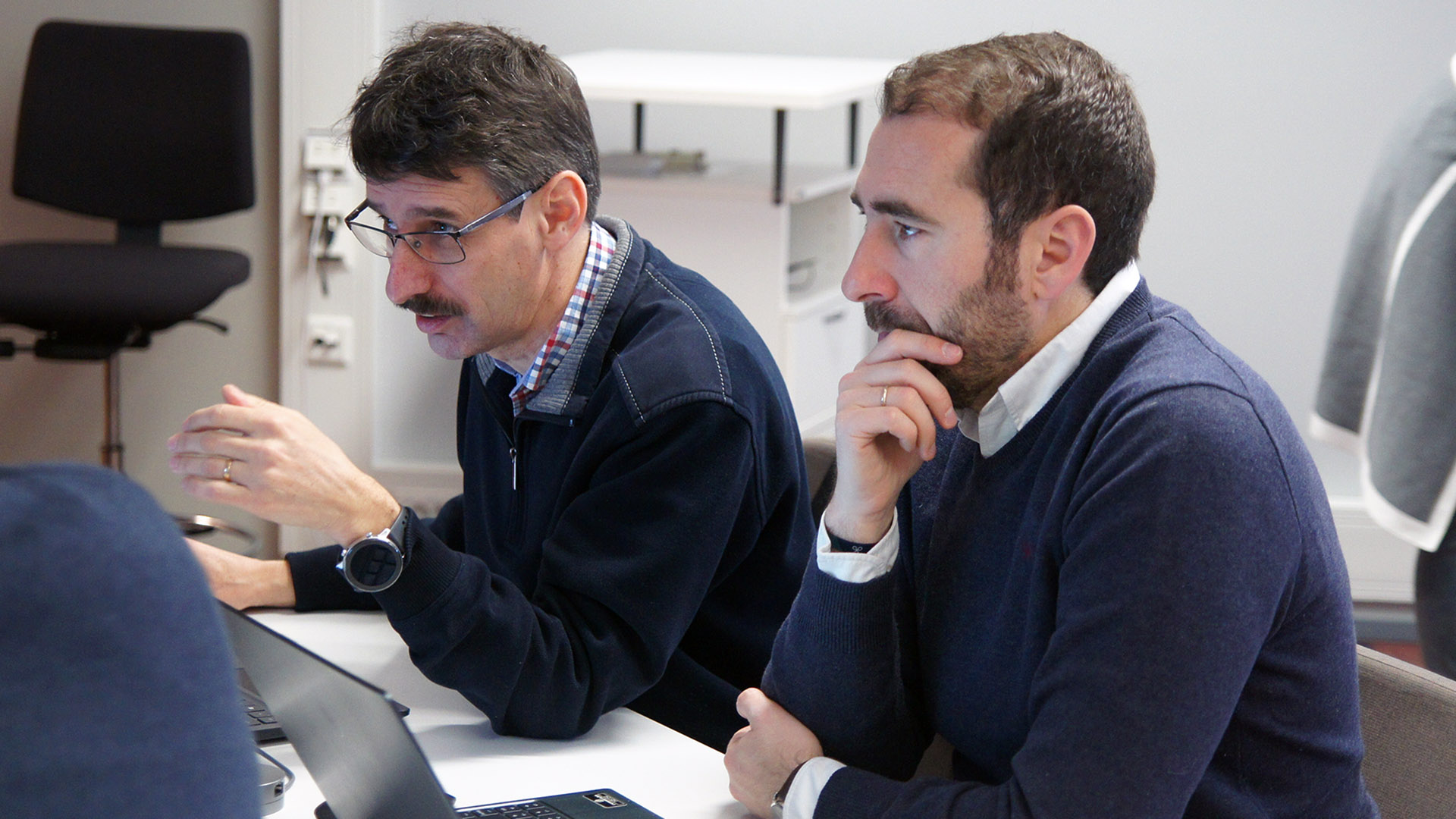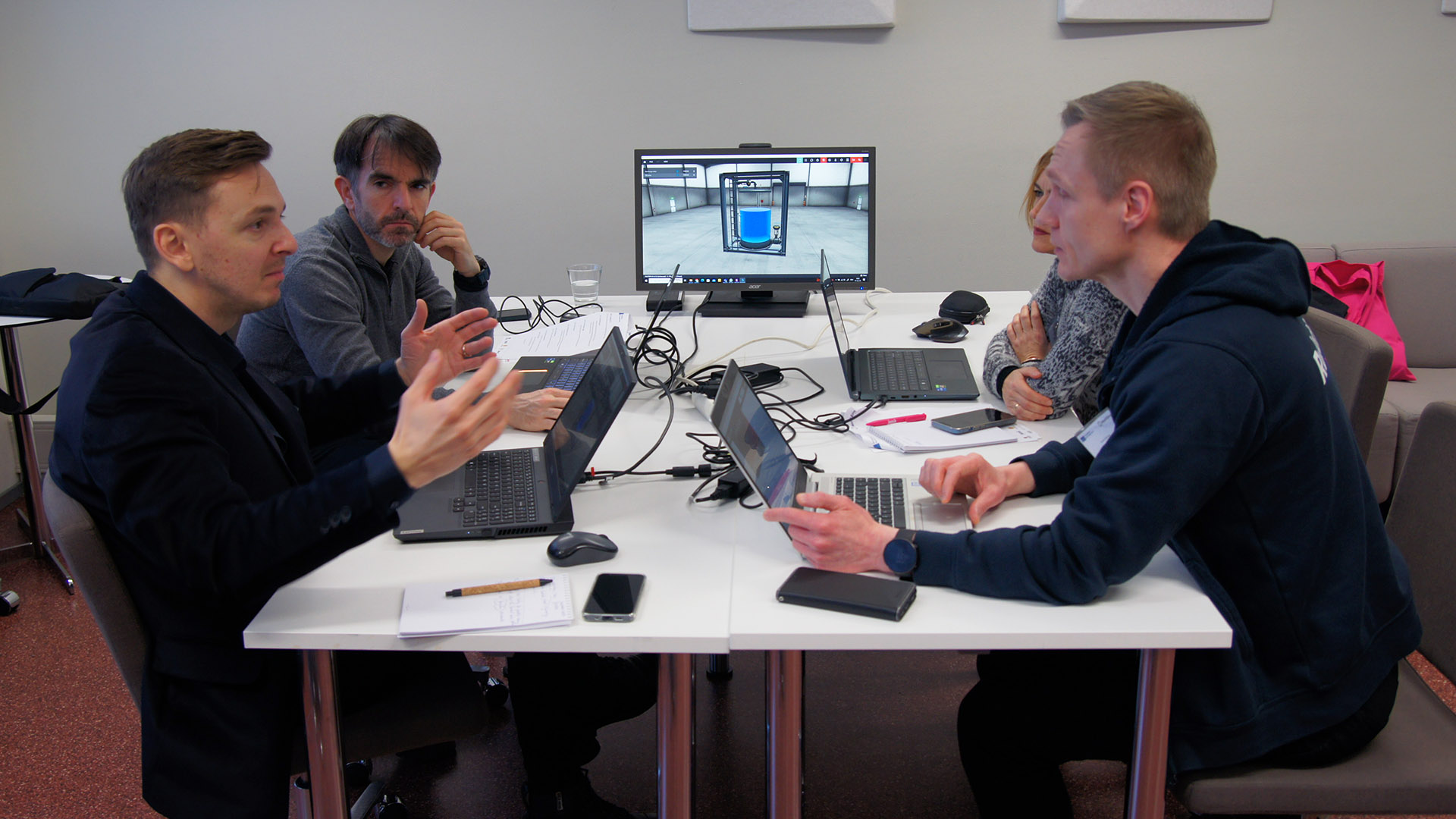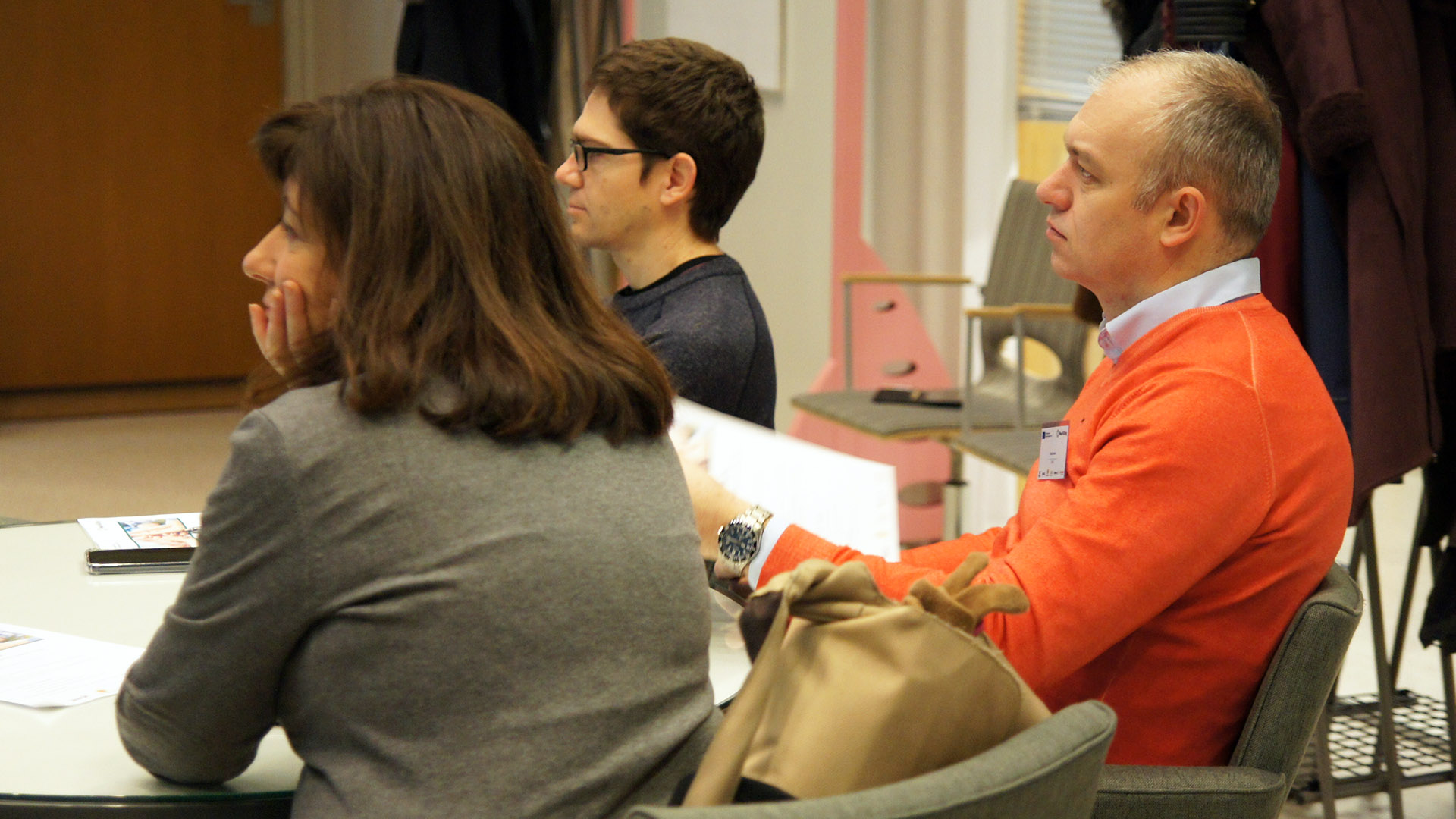NextGEng project develops a new pedagogical framework for the engineering students that facilitate international team-teaching with the support of new learning materials and methods. These new methods integrates student-centered approaches which make use of experiential learning in close collaboration with real-life cases studies developed with the industry partners.
All participant teachers in the program participate in a training program organized in the project. Two such events are organized during the project implementation period. At these events, experts in innovation in pedagogy from different fields address novel teaching techniques and resources, that are to be adapted to engineering. These include cooperative team-teaching, student-centered approaches, and flexible assessment, framed within the modular organization of engineering courses.
1st Tailored Training Seminar
The 1st Tailored Training Seminar was organized from Monday to Tuesday, January 30-31, 2023 at Jamk University of Applied Sciences (JAMK) in Jyväskylä, Finland. The training activity was developed in hybrid mode, at the event 29 (3 online) teachers from all three partner HEIs (Technical University of Cluj-Napoca, Jamk University of Applied Sciences and University of Jaen) took part at the activities organized in the event.
The training activities focused on developing new skills related to student-centered teaching methods that facilitate team-teaching. The seminar program consisted of learning sessions, workshops and visits to JAMK DigiCentre.

2nd Tailored Training Seminar
The 2nd Tailored Training Seminar was organized Thursday, February 22, 2024 in hybrid format by Jamk University of Applied Sciences. The training activity was structured on three sessions that focused on:
•Session 1: Revealing insights from surveys on team-teaching
•Session 2: Discussion on the NextGEng Team-Teaching Pilot Program, exploring concepts, planned activities, and expected outcomes.
•Session 3: Exploration of student-centeredness concepts, implementation case studies, and interactive workshops focusing on shared learning and future course implementations.
At the event, more than 30 participants joined from four EU countries (Spain, Finland, Romania and Germany). The participants were teachers, researchers and company representative from the consortium and associated partners. The event allowed to share the good practices, highlighting successes and emphasized challenges that had been overcome. This process provided further opportunities for development and offered additional guidance for courses that had not yet been updated.
